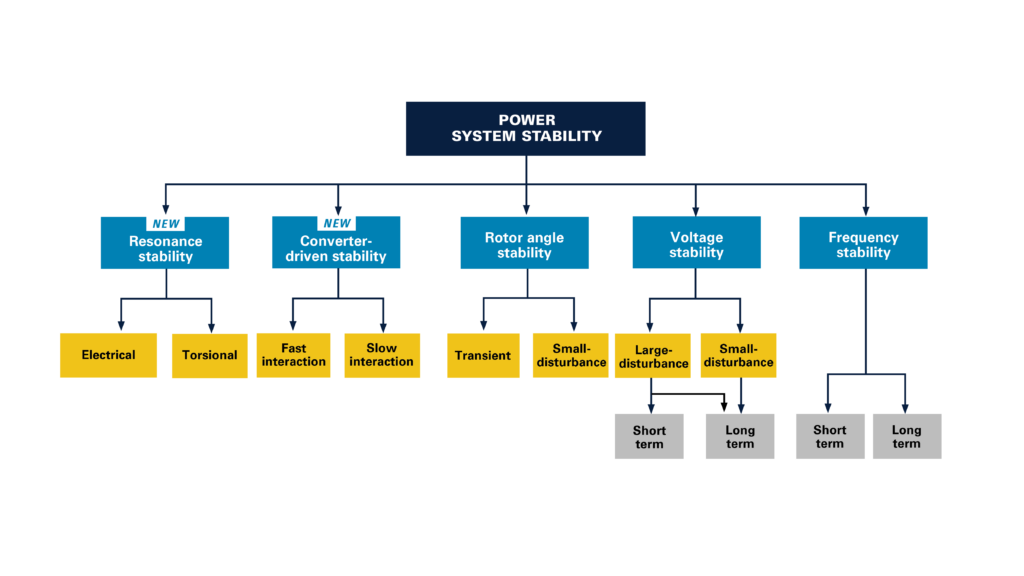Task Force report on grid stability concepts receives IEEE PES Prize Paper Award

An international task force has established new definitions and classifications of power system stability in an effort to enhance communication among researchers, manufacturers, and utility companies. This comes at a time when the entire industry is struggling to adjust to new phenomena caused in large part by ever-expanding renewable energy and energy storage technologies.
“The primary motivation for this task force’s work has been the rapid growth of renewable generation, particularly wind and solar PV,” said Ian Hiskens, Vennema Professor of Engineering, professor of electrical and computer engineering, and member of the task force. In Europe and the United States, wind has been the primary source of renewable energy, but solar power is undergoing rapid development – especially in places like Australia and the sunnier parts of the U.S.
One of the issues that the power and energy industry has been facing is increasing use of specially designed power electronic inverters to connect renewable energy to the grid. These devices, which the task force is calling converter interfaced generation (CIG) technologies, also connect energy storage systems, such as batteries, to the grid.
CIGs are programmed to respond to disturbances on the grid in a way that seeks to maximize their stability. But different manufacturers adopt different control strategies, which may interact badly under rare grid conditions. Furthermore, interactions between CIGs and traditional synchronous generators are still not well understood, with studies suggesting such interactions could threaten the overall stability of the grid.
“A blackout in Australia occurred because of unanticipated interactions between wind generation and the grid,” said Hiskens.
Hiskens was a member of an international group of 16 leaders in power and energy invited in 2016 to participate in a task force to provide the power and energy community with a common vocabulary with which to talk about potential impacts on the stability of power systems around the globe.
Without this common terminology, researchers attempting to improve power system dynamic performance may have difficulty defining and redefining their analysis, and flirt with the danger of misinterpreting each other’s work, or perhaps duplicating solutions.
While convening task forces to define and classify what is happening on the grid is a long-standing tradition (similar reports have been published in 2004, 1982, 1978, 1966, and 1948), these inverter-based controls have thrown a curve ball at the industry.
The 2016 task force published their new definitions and classifications in 2020. In an effort to disseminate their findings as widely as possible, the task force published an article the following year that included the additional definitions and classifications of the new phenomena occurring on national power systems – primarily due to increased renewable generation, energy storage systems, and other similar new technologies.
The information provided by the task force will hopefully be used by researchers, manufacturers and utility companies. For example, problems have arisen where a manufacturer of CIGs built certain characteristics into their equipment, but didn’t disclose those characteristics to the utility company. Meanwhile, utility companies are creating operational criteria while oblivious to the true behavior of the equipment.
And then, added Hiskens, “you have different manufacturers installing equipment on the same grid – using different control loops and technology. Manufacturers thoroughly test their equipment to ensure it works fine in the lab and in isolated field tests, but there’s no opportunity to check that equipment from different manufacturers will work well together.”
The report is expected to motivate and enable future research to establish ways of checking for new phenomena that may occur on the grid, and also provide analysis tools and establish standards.
The paper, “Definition and Classification of Power System Stability – Revisited & Extended,” IEEE Transactions on Power Systems, July 2021, received the 2022 IEEE Power & Energy Society (PES) Prize Paper Award. The award, one of three such awards named this year, will be presented at the 2022 IEEE PES General Meeting, held July 17-21, 2022.
 MENU
MENU